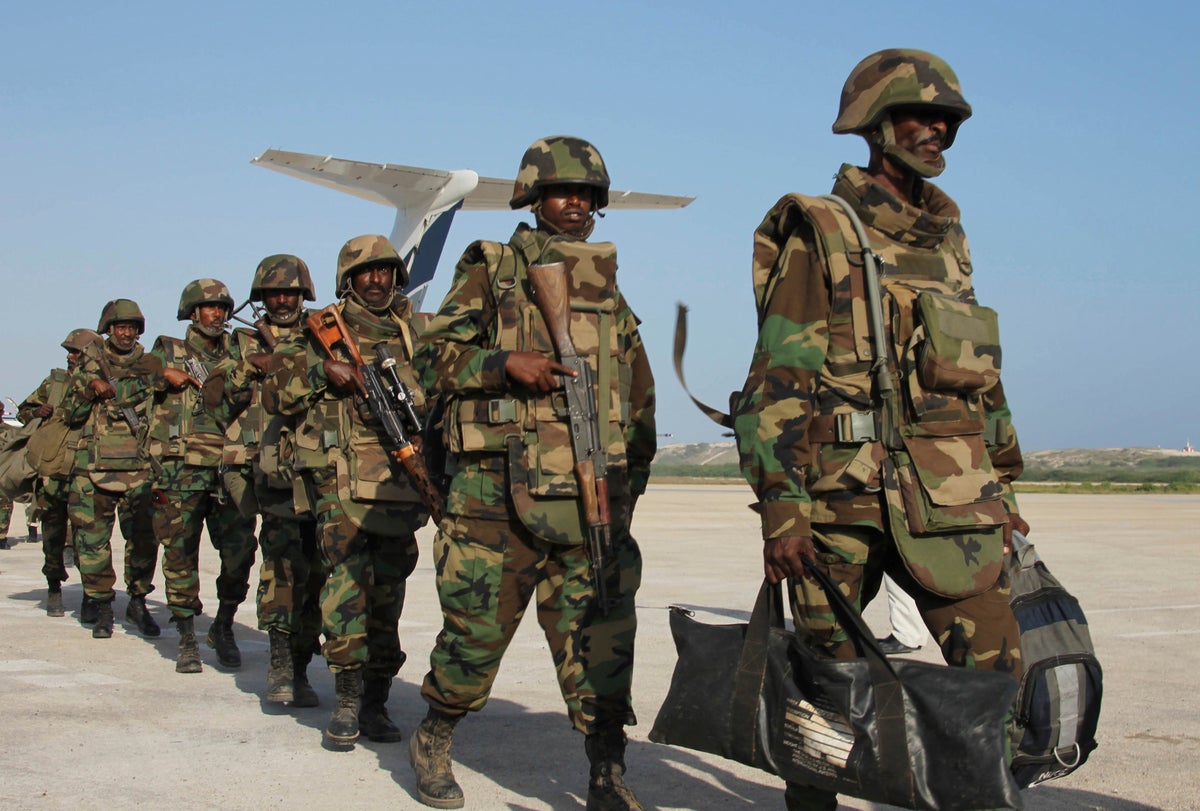
The United Nations Security Council on Thursday suspended for a period of three months the pullout of African Union troop from Somalia, where fighting rages with al-Qaida’s affiliate in East Africa.
The decision follows a request by the Horn of Africa nation for the forces to remain in the country to help in the fight against the al-Shabab extremists.
Somalia’s request was supported by the African Union, all countries that contribute soldiers to the force and the council, which agreed to delay the pullout of the 19,000-strong AU force for 90 days.
Last year in April, the council unanimously approved a new African Union Transition Mission in Somalia, known as ATMIS, to support the Somalis until their forces take full responsibility for the country’s security at the end of 2024.
ATMIS replaced the African Union Mission in Somalia, known as AMISOM, which has been in the Horn of Africa nation for 15 years helping peacebuilding in Somalia.
However, the new force was to be withdrawn in phases, starting last June, when 2,000 soldiers left Somalia and handed over six forward operating bases to federal security forces. The second part of the pullout began in September in line with the U.N. resolution which anticipates the withdrawal to be completed by December 2024.
Somalia’s government last year launched a “total war” on the al-Qaida-linked terror group al-Shabab, which controls parts of rural central and southern Somalia. The group has for more than a decade carried out devastating attacks while exploiting clan divisions and extorting millions of dollars a year in its quest to impose an Islamic state.
The current offensive was sparked in part by local communities and militias driven to the brink by al-Shabab’s harsh taxation policies amid the country’s worst drought on record.
Somalia’s President Hassan Sheikh Mohamud has made the fight against al-Shabab one of his key priorities since being elected in May last year. Federal troops backed by local militias, African Union Forces and U.S drone strikes, have helped the central government recover swaths of territory previously been held by the Islamic extremist group.
But al-Shabab continues to carry out attacks in Somalia, including in the capital of Mogadishu, and in neighboring countries like Kenya, where its fighters have targeted civilians and security officers along the border towns with Somalia.







